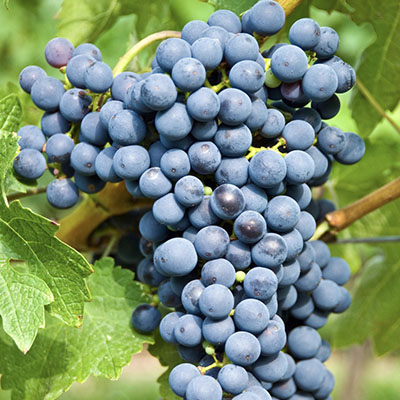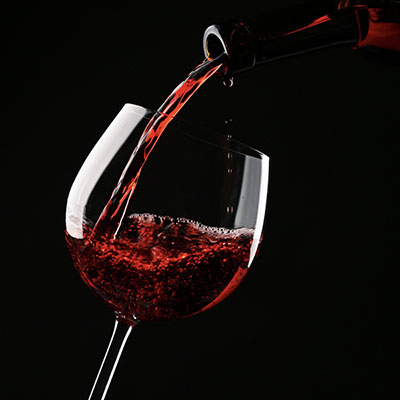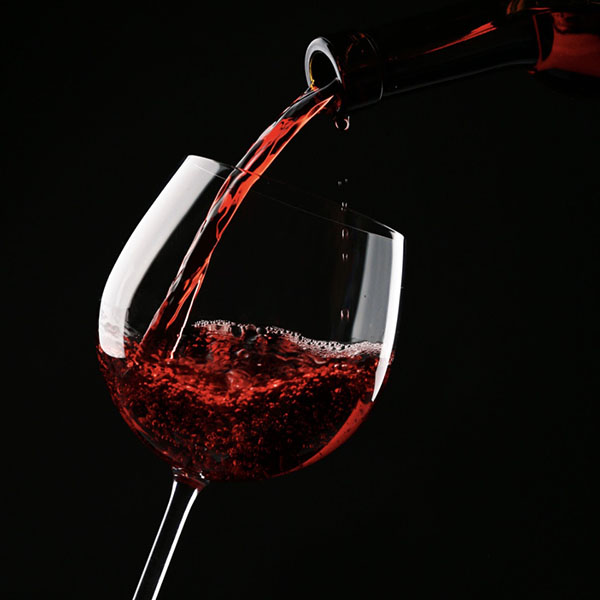Healthy Alcohol – Red Wine
Now there’s an oxymoron of sorts. The title probably should be ‘healthier alcohol’. Without a doubt, one of the most popular questions we get asked in a detox, usually on the morning walk, often by new arrivals. Guests want to know what they can drink and enjoy with the most negligible impact on their weight and health.
Once again, I’ll preface this post by saying a lot of ‘other’ information on this subject online. However, we will come at this from a nutrition angle and attempt to deliver helpful information about what types of alcohol have nutritional value.

While New Leaf Detox isn’t a substance abuse facility, many of our guests are having a break from ‘hitting it hard and want to know the best thing they can drink for their diet. So while we will look at nutritional benefits, we will also address the lower calories beverages.
Spoiler Alert
There are many ‘spoilers’ who say it’s all rubbish and there are no health benefits to any alcoholic beverages. These spoilers work at smaller Medical Clinics and Research Centres that try and discredit the relationship between ‘habits, health and heart disease’; however, we are not one of them, spoilers or are we?

Of course, drink responsibly. There are some excellent components in some alcohol. However, I do agree with some of the spoilers. You have to drink a lot to get the amounts of the good elements. In doing so, the amount needed destroys any goodness. So, in short, yes, there are some excellent things in some alcohol, but you would need to drink way too much to extract enough to have any real health benefits. – Spoiler!
So while you are going through the grief stages over that low blow, let’s look at the next best thing, the calories.
Red Wine
White wine drinkers are always disappointed when I suggest it might be time for them to switch to red wine. “really, I can’t stand red wine” is a typical response. I then proceed to break down some of the benefits and seem to be open to trying red by the end of the conversation.
Disclaimer:
Quality Matters when it comes to anything but especially red wine. When we talk about the nutritional benefits, we are not referring to the old Chateau de Cask (cardboard cask wine) full of chemicals and sugars. I am referring to a responsibly priced quality bottle of wine for this example. Three suitable components of red wine:
- Quercetin
- Polyphenols
- Resveratrol
Quercetin
Quercetin is a common plant flavonol found in many grains, fruits and vegetables. It is a powerful antioxidant and has anti-inflammatory properties. It is very beneficial when taken as a supplement. Other benefits include boosting the immune system, reduced histamines and helps with skin irritations.
Polyphenols
Polyphenols are a group or category of extracts and chemicals found in foods. Their potency depends on the climate and location, soil quality and freshness. However, the benefits are vast.
Like Quercetin, Polyphenols are found in grains such as oats, rye and wheat. Nuts such as flaxseed, pecans, walnuts, chestnuts, hazelnuts, and our favourite nut to make milk from, the almond. Many fruits, including red wine grapes and vegetables, also contain polyphenols.
If you’d like to know more about Quercetin, there is an excellent article from Medical News Today.
Resveratrol
Last but not least, my favourite is resveratrol. Resveratrol is a part of the polyphenols group, but it is worth separating as it has incredible health benefits. We do recommend this as a supplement too. Maybe you wash a few down with your red wine.
Resveratrol is found in many berries such as raspberries, blueberries, mulberries, the skin of the red grape, peanuts and Japanese knotweed, a herb used for gingivitis and other oral health issues.
Many articles written about resveratrol sight more research is needed. However, they all agree there are powerful anti-aging and anti-inflammatory properties to resveratrol. Resveratrol assists in the prevention of insulin resistance, lowering hormone insulin. Hormone insulin can lead to diabetes.

Resveratrol has also been shown to kill the spread of cancer cells and lowers bad cholesterol called LDL. Lowering LDL’s can reduce clotting of the arteries reducing heart attacks and strokes. It has also been found to reduce brain plaque which can contribute to Alzheimer’s. So think about that when you are sipping your glass of red.
Calories
So now for the good stuff. Red wine is a lower carbohydrate drink. Do I need to worry about the calories? There are about 120 calories in approximately 5 ounces of red wine. The problem with red wine is you may feel hungry during consumption. So it might be best to consume red wine with a meal. Just ask any French persons, and they will most likely agree.
French Paradox was coined for the French because they can consume more dairy, cheeses, and fatty foods. Because they drink red wine, the French have lower heart attacks and cardiovascular issues in their community. So the theory is the red wine benefits cancel out the health issues associated with that food group, hence the French Paradox.
So grab yourself a quality bottle of red wine. Open it as you stream the wise words of Mr Neil Diamond or UB-40 – ‘Red, red wine, goes to my head, makes me forget that I still need you so… KP
If you would like more information about wellness and our detox, weight loss packages please contact us or visit the wellness programs page.
